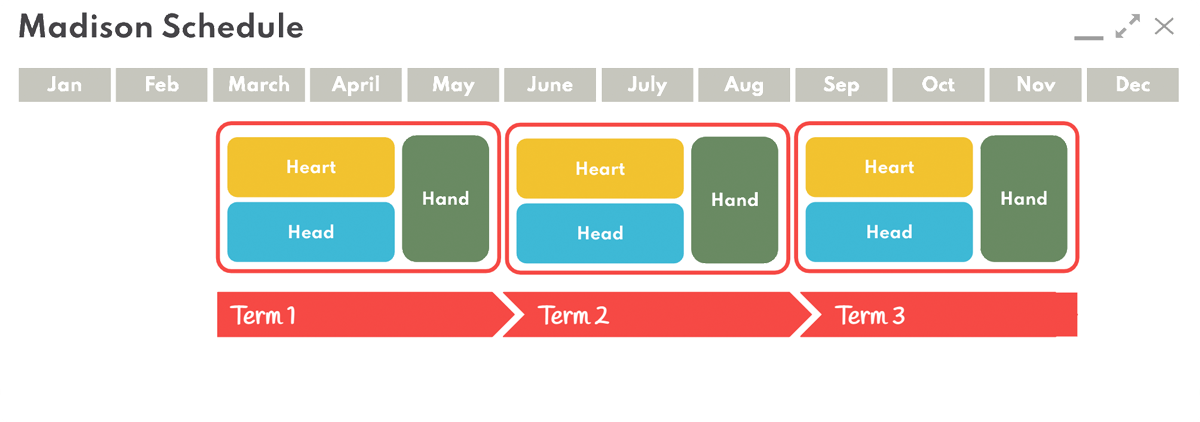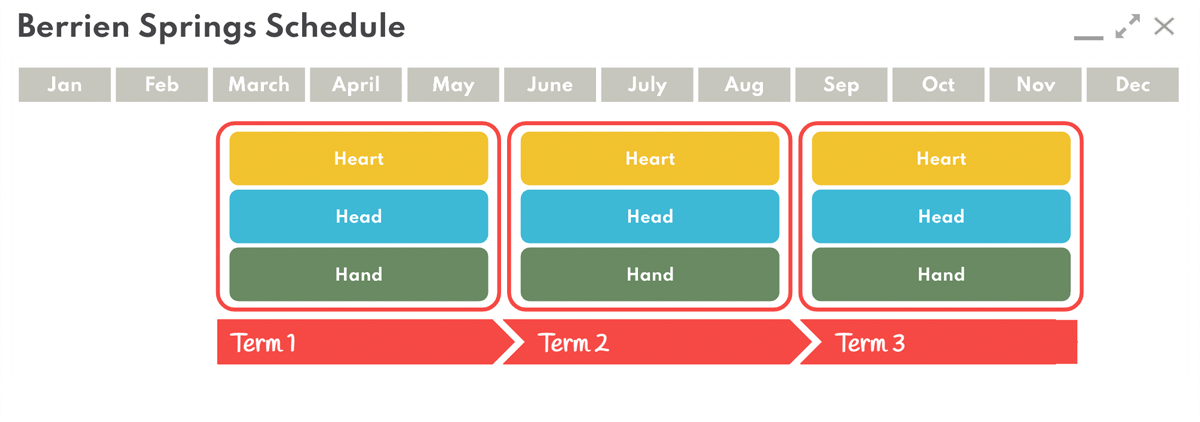How long will be the length of the program?
“The vast majority of students coming to Madison expected to be teachers or health workers in rural communities. They studied Bible, history, science, or grammar during the regular nine week terms. Short three-week sessions devoted to practical skills like carpentry, cobbling, or blacksmithing were offered between regular terms. The first year Mrs. Druillard offered a one year course in practical nursing and hydrotherapy. Later, when a sanitarium was added to the school in 1907, this course was lengthened to two years. In all subjects the emphasis was on teaching the student to be proficient enough to teach the same subject matter when he went out on his own.” R.W. Schwarz, Light Bearers to the Remnant, p. 247

“One unusual feature started by Sutherland was having each student work on only one subject each of the three terms in the nine-month school year. (It should be mentioned that, many years later, a similar program was started at the University of Chicago in the mid-twentieth century with outstanding success. Recent secular educational research has disclosed that students learn far more by studying only one or two subjects at a time than by taking five or six per term, attending 50-minute classes in each of these, and then rushing to a different class for another subject.) Later, Sutherland changed this to three classes at a time.” Broken Blueprint
“With this plan, they reasoned, a student at the end of nine months (three terms) could receive certificates or ‘credits’ from three or four courses as before, but if he had attended only one term, he would have gotten a complete course rather than merely a third of one.” E.K. Vande Vere, The Wisdom Seekers, p. 110


| Season | Pro | Con |
|---|---|---|
| Growing Season | Aligns with growing season = True Education Student quality = people who want to commit their lives to service for God with us or another ministry or a ministry of their own (not follow the pattern: high school-college-just a job) Less food costs if able to eat from garden 3 months “all teachers and all students should spend some time every day working together at productive manual labor.” | Does not align with traditional graduation cycles Potentially less students could fit into the schedule |
| Educaton Schedule | Easier for gap year More convenient for students | Does not start and end with growing season/miss the agricultural cycle Several months spent indoors with limited outdoor time (Hand) Higher food costs or eating preserved foods |
| Repeating Terms | Likely more students Shorter Training Cycles More Flexibility of Dates | Less time with students Only learn part of duties and responsibilities of homestead |
One strong argument for aligning with the growing season is that in True Education we are instructed that “all teachers and all students should spend some time every day working together at productive manual labor” which is harder to do in winter months. There is also the fact that food costs are less and food quality is higher during the summer months. It may be found that the student quality is higher, attracting people who want to commit their lives to service for God with us or another ministry or a ministry of their own (not follow the pattern: high school-college-just a job).
We are given advice that the curriculum should include practical skills such as gardening, construction and other useful skills.
“...the students are taught how to till the soil, how to build houses, and to perform other lines of useful labor. These are some of the lines of work that the Lord instructed us to introduce... With a practical training, students will be prepared to fill useful positions in many places.”
E.G. White (SpTB11 25.1)
“The usefulness learned on the school farm is the very education that is most essential for those who go out as missionaries to many foreign fields. If this training is given with the glory of God in view, great results will be seen. No work will be more effectual than that done by those who, having obtained an education in practical life, go forth to mission fields with the message of truth, prepared to instruct as they have been instructed. The knowledge they have obtained in the tilling of the soil and other lines of manual work, and which they carry with them to their fields of labor, will make them a blessing even in heathen lands.”
E.G. White (SpTB11 29.2)
